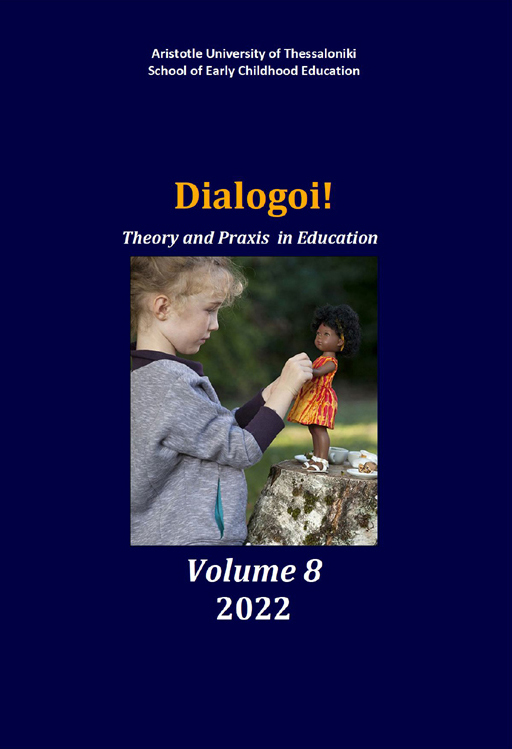The use of the techniques of Drama in Education in the approach of moral dilemmas

Abstract
The present research focuses on the investigation of the effects of techniques of the Drama in Education regarding the approach to ethical dilemmas related to the management of otherness. Specifically, it describes the planning, implementation and evaluation of a Pedagogical Program based on Drama in Education in order to develop the intercultural competence of students of the 4th grade of the Primary school. In this qualitative research, semi-structured focus group interviews, mid-term questionnaire and written texts produced by the students, were used as means of data collection. Based on the findings of the research, it was found that the techniques of Drama in Education positively mediated the change of the initial negative attitudes of the students regarding the moral dilemmas that were posed to them in relation to the acceptance of ethnic, cultural, linguistic and religious otherness. In the findings of the research, it was established that the use of moral dilemmas contributed positively to the transformation of negative stereotypes, to the reduction of prejudices and in general to the development of the acceptance of the different "other".
Article Details
- How to Cite
-
Papaioannou, T., & Magos, K. (2022). The use of the techniques of Drama in Education in the approach of moral dilemmas. Dialogoi! Theory and Praxis in Education, 8, 20–39. https://doi.org/10.12681/dial.31112
- Issue
- Vol. 8 (2022)
- Section
- Scientific columns

This work is licensed under a Creative Commons Attribution-NonCommercial-ShareAlike 4.0 International License.
Authors who publish with this journal agree to the following terms:
- Authors retain copyright and grant the journal right of first publication with the work simultaneously licensed under a Creative Commons Attribution Non-Commercial License that allows others to share the work with an acknowledgement of the work's authorship and initial publication in this journal.
- Authors are able to enter into separate, additional contractual arrangements for the non-exclusive distribution of the journal's published version of the work (e.g. post it to an institutional repository or publish it in a book), with an acknowledgement of its initial publication in this journal.
- Authors are permitted and encouraged to post their work online (preferably in institutional repositories or on their website) prior to and during the submission process, as it can lead to productive exchanges, as well as earlier and greater citation of published work (See The Effect of Open Access).


